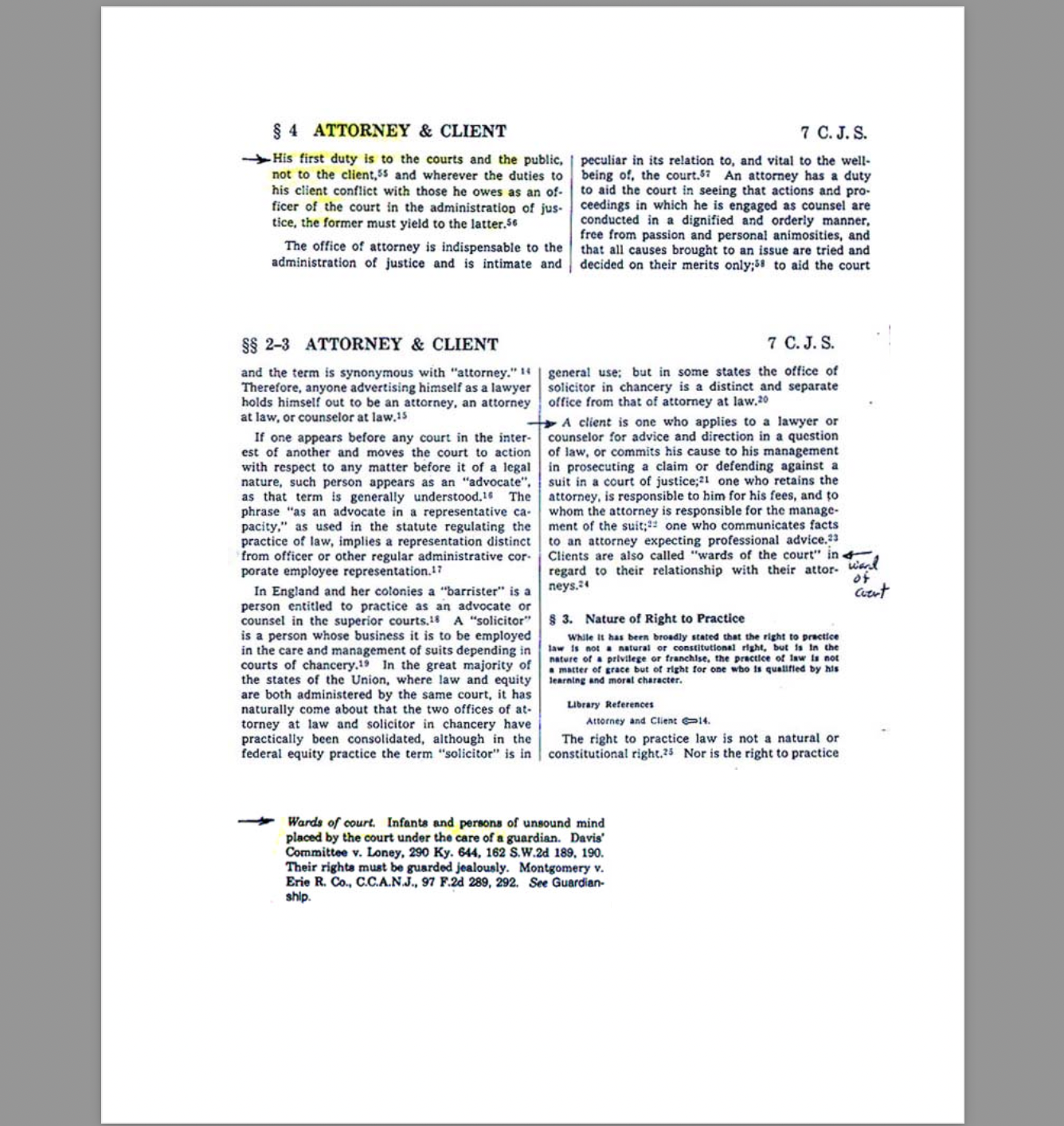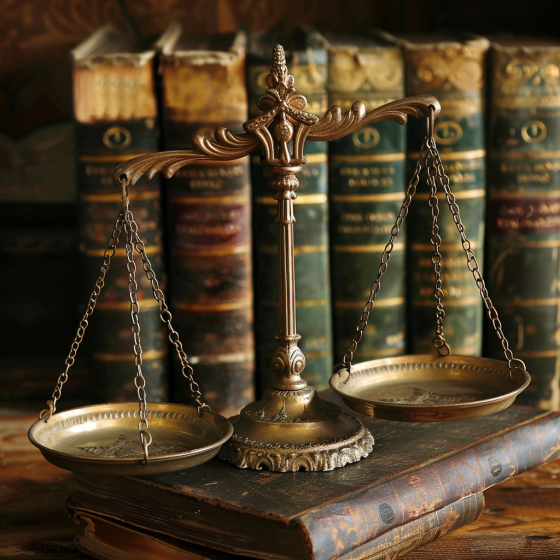Many ask when presented with an issue, “Should I hire an attorney? ” That is a question that each must answer for themselves. However, before making that decision, you might wish to consider the following questions and answers:
1. To what or whom is an attorney’s first duty?
We consult the latest Corpus Juris Secundum (C.J.S.) legal encyclopedia, volume 7, section 4 for the answer below:
§ 4 ATTORNEY & CLIENT 7 C.J.S.
“His first duty is to the courts and the public, not to the clients, and wherever the duties to his client conflict with those he owes as an officer of the court in the administration of justice, the former must yield to the latter.
The office of attorney is indispensable to the administration of justice and is intimate and peculiar in its relation to, and vital to the wellbeing of, the court. An attorney has a duty to aid the court in seeing that actions and proceedings in which he is engaged as counsel are conducted in a dignified and orderly manner, free from passion and personal animosities, and that all causes brought to an issue are tried and decided on their merits only; to aid the court…”
2. What is the legal relationship between an attorney and his/her client?
§§ 23 ATTORNEY & CLIENT 7 C.J.S.
“…and the term is synonymous with “attorney”. Therefore, anyone advertising himself as a lawyer holds himself out to be an attorney, an attorney at law, or counselor at law.
If one appears before any court in the interest of another and moves the court to action with respect to any matter before it of a legal nature, such person appears as an “advocate”, as that term s generally understood. The phrase “as an advocate in a representative capacity,” as used in the statute regulating the practice of law, implies a representation distinct from officer or other regular administrative corporate employee representation.
In England and her colonies a “barrister” is a person entitled to practice as an advocate or counsel in the superior courts. A “solicitor” is a person whose business it is to be employed in the care and management of suits depending in courts of chancery. In the great majority of the states of the Union, where law and equity are both administered by the same court, it has naturally come about that the two offices of attorney at law and solicitor in chancery have practically been consolidated, although in the federal equity practice the term “solicitor” is in general use; but in some states the office of solicitor in chancery is a distinct and separate office from that of attorney at law.
A client is one who applies to a lawyer or counselor for advice and direction in a question of law, or commits his cause to his management in prosecuting a claim or defending against a suit in a court of justice; one who retains the attorney, is responsible to him for his fees, and to whom the attorney is responsible for the management of the suit; one who communicates facts
to an attorney expecting professional advice. Clients are also called “wards of the court” in regard to their relationship with their attorneys.
§ 3. Nature of Right to Practice
While it has been broadly stated that the right to practice law is not a natural or constitutional right, but is in the nature of a privilege or franchise, the practice of law is not a matter of grace but of right for one who is qualified by his learning and moral character.”
Library references
Attorney and Clients
“The right to practice law is not a natural or constitutional right. Nor is the right to practice…”
3. What is a ward of the court?
“Wards of court. Infants and persons of unsound mind placed by the court under the care of a guardian. Davis Committee v. Loney, 290 Ky. 644, 162 S.W. 2d. 189, 190. Their rights must e guarded jealously. Montgomery v. Erie R. Co., C.C.A.N.J., 97 F, 2d 289, 292. See Guardianship”
(Are you an infant or person of unsound mind?)
4. Do you need to challenge jurisdiction? Better read the following,
particularly “…because if pleaded by an attorney…”
“In propria persona /in pröwpry! persówn!/. In one’s own proper person. It was formerly a rule in pleading that pleas to the jurisdiction of the court must be plead in propria persona, because if pleaded by attorney they admit the jurisdiction, as an attorney is an officer of the court, and he is presumed to plead after having obtained leave, which admits the jurisdiction. See Pro se.”

Conclusions of law:
- When you hire an attorney, you become a ward of the court and a second class citizen and you admit the jurisdiction of the court in the matter at hand (which is in the fiction since all courts today are corporate; so you’d be indicating that you are a surety for a civilly dead entity: the ALL CAPS SPELLING OF YOUR NAME via the STATE’s defiled version of your birth certificate which they tricked you into becoming the surety for.)
- You can’t hire an attorney if you want to challenge jurisdiction.
- If you want to challenge jurisdiction, the only way you can do it is as a “sui juris” and/or “in propria persona”.
Should you hire an attorney? What do you think?




